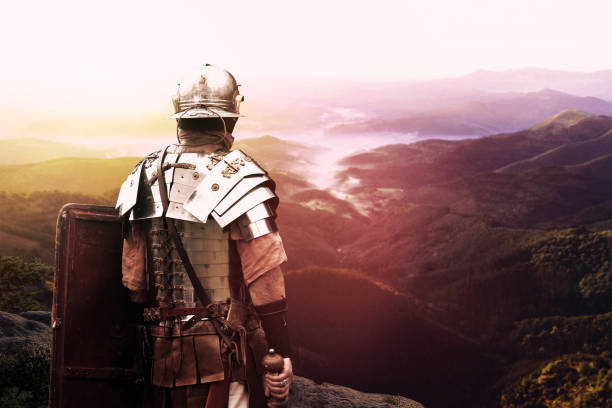The New York Times newspaper of February 12, 1979 carried a headline article which read:
“A 4‐year‐old Brooklyn boy who fell from a seventh‐floor window on February 2, apparently while trying to “fly like Superman,” died of his injuries early yesterday at Kings County Hospital.
A few days before, his father had taken him to see the movie “Superman,” based on the adventures of the comic‐strip character. Since seeing the movie, Charles had been jumping off tables and chairs in the family’s apartment in an effort to ‘fly like Superman.’
Sadly, Charles was not the only one. Several newspaper reports from around the world carried similar news items documenting how other children suffered a similar fate when they tried to imitate their superhero. Growing up, we had similar incidences of children jumping off rooftops, trying to imitate Captain Planet—an action figure from an educative weekly cartoon series streamed on Ghana Television at the time.
Sad as these stories may be, they illustrate the apparent truth about the so-called super heroes that have captivated our imagination for years: they inspire us to unattainable feats! They come with the warning, “Don’t try this at home” or “Don’t imitate what I do”. The verdict: we need real-life superheroes whose lives we can emulate!
In this article, I would like to draw your attention toa character whom I consider one of the unsung heroes of the Bible – a soldier named Uriah the Hittite. A man who, to borrow James’ words, was subject to like passions as we are (James 5:17) and yet went on to achieve amazing feats for God!
Uriah Unveiled
We first encounter Uriah in 1 Samuel 11:1-17. We can learn a lot about what sort of person he is from how he is introduced: Uriah the Hittite, husband of Bathsheba, daughter of Eliam. Here is a Hittite—a gentile—who bears a Jewish name, is married to a Jewish woman and lives just outside the king’s palace.
The Hittites were one of the nations which occupied Canaan long before the time of Abraham. God had commanded the Israelites to drive out the inhabitants of the land: the Hittites, Amorites, Canaanites, Perizzites, the Hivites and the Jebusites (Deuteronomy 20:17; Exodus 23:27-30), with the explanation, “otherwise, they will teach you to follow all the detestable things they do in worshipping their gods, and you will sin against the Lord your God” (Deuteronomy 20:18). However, some were spared—in some cases, for cooperating with the Hebrews (Deuteronomy 20:10), but in other cases, owing to a failure to carry out the extermination order fully.
We know from Scripture that some of those gentiles, having lived with God’s people for a while, embraced the Hebrew religion and placed their faith in the Hebrew God. Uriah was one such. He must have changed his name when he came to embrace the Hebrew faith, taking upon himself a theophoric name which means “Yahweh is my light” – conveying the fact that the God of the Hebrews had become his light and his salvation—presumably from Psalms 27:1.
His faith was not a fluke—it was authentic—for if it weren’t, and had he kept his gentile ways, he would have been forbidden to marry Bathsheba (Recall the apostles’ consternation during the Jerusalem council in Acts 10 & 11, after Peter visited Cornelius’ home!).
It is remarkable that several foreigners, like Uriah, are listed in David’s list of mighty warriors in 2 Samuel 23—an elite group of soldiers who served as the crème de la crème of David’s soldiers. These men were the first to see greatness in David at a time when he was a fugitive on the run from his master Saul (1 Chronicles 12:1). They were instrumental in bringing David to power as king (1 Chronicles. 11:10), and some of them even tutored the king’s sons (1 Chronicles 27:32).
Uriah reminds us that God has room in his kingdom for every one of us. We, too, like Uriah, were once enemies of God in our minds and deserving of His wrath and judgement. But in Christ Jesus, we have been brought into God’s inner caucus. We have become “a chosen race, a royal priesthood, a holy nation, a people for his own possession. Once you were not a people, but now you are God’s people; once you had not received mercy, but now you have received mercy” (1 Peter 2:9).
The Band of Brothers
David’s mighty men represented a band of brothers who had covenanted to protect David and each other at the peril of their own lives. They were his most trusted soldiers. We know that David trusted Uriah because he was permitted to live just outside the king’s palace and was familiar with David’s palace. As the passage reveals, when David summoned Uriah to the palace from the war, he found his way to the servant’s quarters—even when he was drunk—and had no trouble securing a sleeping spot among the king’s servants. Clearly, this was someone they knew very well.
Observe Uriah’s reasons for refusing to go spend an evening with his beautiful wife, Bathsheba. The ark of the Lord is out there on the battlefield, in a booth, along with Israel, Judah, and his band of brothers. How could he allow himself the luxury of a warm bed when his sworn brothers were out in the cold, fighting the Lord’s battle? Doubtless, Uriah understood the spiritual significance of the ark of the Lord to Israel’s victories in battle. I’m pretty sure he remembered how the ark had once been taken into battle during the time of Hophni and Phinehas and had been captured by the Philistines; and could not stand to not be on the battlefield with his brothers when they needed him the most. And for the first time, an ordinary soldier had more sense than the king.
It is instructive to note that one of the marks or tests of genuine faith we see across the New Testament is a love for the brethren. Next to the love for God, a genuine love for God’s people is an acid test that we have truly been born of God (Ephesians 1:15-16, Colossians 1:3-4, 2 Thessalonians 1:3, Philemon 1:5-7). Just like Uriah, we too have “a band of brothers” made up of all who have placed saving faith in the Lord Jesus (Matthew 12:46-50). The bond of unity we share is akin to that of the parts of our physical bodies with each other. 1 John 3:14 says, “We know that we have passed out of death into life, because we love the brothers.” Like Uriah, do you care deeply for your ‘band of brothers’? Do you feel uncomfortable when you miss an opportunity for fellowship or do you easily find excuses to be away from the gathering of the saints?
Faithfulness Amid the Fight
In a final, desperate act to cover up his tracks, David writes Uriah’s death sentence and delivers it by his own (Uriah’s) hand. I’m sure Uriah may have wondered why David had to call him home? Indeed, if David wanted information about the war, he could have gotten that information from anyone else without calling one of his elite soldiers away from the war. Why was David bent on him going home to his wife? It may even be possible; Uriah might have heard the gossip when he spent those two nights in the servants’ quarters at the palace. David’s suspicious behaviour must have raised alarm bells in his mind. Yet, his faithfulness shines through once more: Uriah carries his death warrant to Joab and does not open it to read what it says.
The note read, “set Uriah in the hardest forefront of the battle and withdraw from him so that he dies.” David betrayed the trust of a faithful brother. And we may wonder why God would allow Uriah, who was more faithful than David in this situation, to die and David to go scot-free. But it is important to understand that we may sometimes suffer for our faithfulness in this life, but our labour for God is never in vain. Uriah knew that he was ultimately not serving David but God, and it is from him he would receive an imperishable inheritance as his reward. We see this in his response when David asks him to go and be with his wife.
Finally, if Uriah were here, he would tell us that doing the right thing doesn’t always mean all will go well. Prosperity preachers would have us believe that if you follow Jesus, you will never suffer. But Jesus would disagree with that. He told us in John 16:33, “In this life, you will have trouble“, but thank God he did not stop there; he added, “but take heart, I have overcome the world!”



Uriah a great example… I will remain faithful in the midst of challenges.
Amen!
Great Piece. May God help us with this kind of attitude. Faithfulness and loyalty is what I see in Uriah. Great guy
Amen, Brother Jerome! May we be found faithful, even amid the fire of fiery trials!